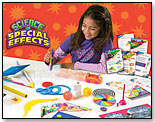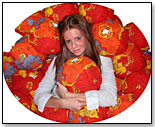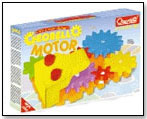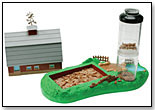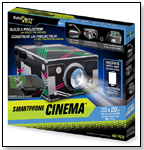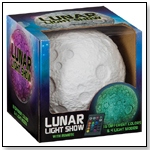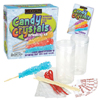|
|
How to Pick a Great Science Toy Science Manufacturers Break Down Their Natural Selections
“To inspire a great mind is to inspire great questions,” Robert Forenza of Hugg-A-Planet (Gift Guide) pointed out. It’s the very uniqueness of the questioning that differentiates science toys from any other play, be it television, toys or video games. “A good science and nature toy will ‘hook’ a child’s attention,” related Nancy Balter, a product developer at Educational Insights Inc., “and then guide the child into making a discovery.”
But they can’t be pedantic. “We believe that first and foremost a toy has to be fun,” explained Joe Sykes, of Quercetti. “That has to be its most important trait. We never underestimate the intelligence of children either, and therefore we try to make the toy a little challenging, too.” Balter seconded the idea of making toys challenging but age appropriate: “It’s definitely important to gauge the level of the science to the user. Studies have been done on the age(s) at which students can understand new concepts, and we take that into consideration. We also consider state and national science standards so we know at what age children are learning particular science facts and concepts in school.” Sometimes, it’s the teachers themselves who help to shape the next great science kit. “We always listen to our core customers, the teachers,” explained John White, director of marketing for Insect Lore. “We often try to facilitate habitats for things that the teachers are already raising.”
Some companies are started by scientists, such as the neurophysiologist Eugene Hull, Ph.D, founder of Triops Inc. (Gift Guide), and Carlos White, the entomologist who began Insect Lore. The founding partner of SentoSphere was a “nose” for various perfume makers. But others come from less academic backgrounds. Quercetti’s background was as a World War II pilot. In the end, it’s the product that counts. And the toy the next paradigm-shifting scientific genius is going to be inspired by …? Check below; it might be one of these:Slime Laboratory by TOYOPS INC.
Writer's Bio: Mark Zaslove is an entertainment industry veteran in developing content (writing, directing and producing television and feature films) for the major studios, including Disney, Universal and Warner Bros. A two-time Emmy Award winner for writing and recipient of the Humanitas Prize (for writing uplifting human values in television and movies), Mark is also Head of Content Development for Nice Entertainment. Read more articles by this author
|
| |||||||||||||||||||||||||||||||||||||||||||||||||||||||
Disclaimer Privacy Policy Career Opportunities
Use of this site constitutes acceptance of our Terms of Use.
© Copyright 2026 PlayZak®, a division of ToyDirectory.com®, Inc.

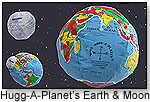 What makes a good science and nature toy? Is it gauging the level of the science to the user? Is it making it fun (and if so, how)? How expert in science do you have to be to create a really interesting science toy? What makes a toy inspire the next Albert Einstein ... or the next Charles Darwin?
What makes a good science and nature toy? Is it gauging the level of the science to the user? Is it making it fun (and if so, how)? How expert in science do you have to be to create a really interesting science toy? What makes a toy inspire the next Albert Einstein ... or the next Charles Darwin?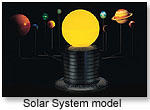 “The best science toys are those that spark questions, not answers,” iterated Forenza. That’s science and science toys in a nutshell.
“The best science toys are those that spark questions, not answers,” iterated Forenza. That’s science and science toys in a nutshell.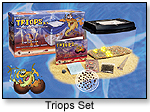 Which leads to the question: How expert do you have to be to create a good science toy?
Which leads to the question: How expert do you have to be to create a good science toy?